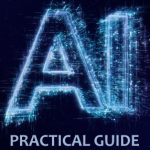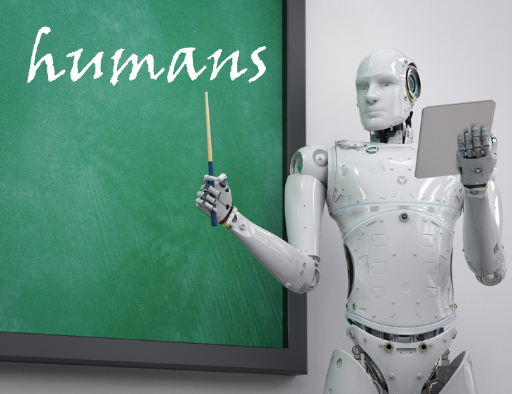AI in Education: An Overview
AI is beginning to alter education tools and institutions, offering massive potential for new learning models. The driving force behind this technological intervention is the ability to personalize learning, making it a coherent, understandable, and enjoyable process for students of all ages.
AI in education is not about replacing teachers with machines. Instead, it’s about leveraging the best attributes of both to create a synergistic relationship that provides the best outcome for students. Teachers and AI can collaborate to create a more dynamic and effective learning environment.
Applications of AI in Education
- Differentiated and Individualized Learning: One of the most promising applications of AI in education is differentiated and individualized learning. AI can provide learning, testing, and feedback to students from pre-K to college level, allowing a level of differentiation that’s impossible for teachers who have to manage 30 students in each class.
- Intelligent Textbooks: Intelligent textbooks are another innovative application of AI in education. These textbooks can monitor students’ focus and attention, suggest questions about content, change reading levels, and include supplemental materials to enhance understanding.
- Improved Assessment: AI-assisted assessment identifies patterns in learning that traditional methods may miss. For example, Duolingo uses AI to create tests based on a student’s abilities and weaknesses, providing a more accurate and personalized assessment.
- Personalized Learning: AI tailors instruction to a student’s interests and goals, providing personalized assistance while keeping them engaged. Chatbots with AI systems guide students with personalized assistance, making learning more engaging and effective.
Benefits of AI for Education
Artificial Intelligence (AI) offers several benefits in the field of education, including:
- Personalized Learning: AI can tailor educational content to meet the unique needs of each student. By analyzing a student’s performance, AI can identify strengths and weaknesses and provide customized learning materials accordingly.
- Efficient Administrative Tasks: AI can automate administrative tasks such as grading and scheduling, freeing up time for teachers to focus more on instruction and less on paperwork.
- Intelligent Tutoring: AI can provide students with personalized tutoring, offering targeted feedback and support to help students understand complex concepts.
- Improved Accessibility: AI can help make education more accessible to students with disabilities. For example, speech-to-text technology can help students with hearing impairments, while text-to-speech technology can assist those with visual impairments.
- Data-Driven Insights: AI can analyze vast amounts of data to provide insights into student performance and learning trends. This can help educators develop more effective teaching strategies and interventions.
- Interactive Learning: AI-powered tools like chatbots and virtual reality can make learning more interactive and engaging, which can enhance student motivation and learning outcomes.
- Global Learning: AI-powered platforms can connect students and teachers from different parts of the world, promoting cross-cultural learning and collaboration.
- Continuous Learning: AI can facilitate continuous, lifelong learning by providing access to a vast array of online resources and courses that can be accessed anytime, anywhere.
While AI offers many benefits, it’s also important to consider potential challenges and ethical issues, such as data privacy, equity in access to AI tools, and the need for human oversight and interaction in education.
The Future of AI in Education
The future of AI in education looks promising. AI mentors for learners, further development of smart content, and a new method of personal development for educators through virtual global conferences are just a few of the potential future applications of AI in education.
However, it’s important to note that while AI has the potential to greatly enhance education, it also comes with challenges. These include ensuring cultural diversity in AI models, optimizing models for student learning, and ensuring that AI-generated responses are accurate and helpful.
Ethical Concerns
While AI holds great promise for revolutionizing education, it also raises several ethical concerns. One of the primary concerns is data privacy. AI systems often rely on collecting and analyzing large amounts of data, which can include sensitive information about students. Ensuring this data is collected, stored, and used in a way that respects student privacy is a significant challenge. Another concern is the potential for AI to perpetuate or exacerbate existing inequalities in education. For instance, if AI educational tools are not equally accessible to all students, it could widen the achievement gap. Additionally, there are concerns about AI systems potentially making decisions that should be made by humans, such as determining a student’s academic path or grading subjective assignments. These ethical concerns need to be carefully considered and addressed as we integrate AI into our educational systems.
AI for Education FAQ
How is AI being used in education?
AI is being used in education in several ways. It's being used to personalize learning, providing students with tailored instruction that matches their learning style and pace. AI is also being used to automate administrative tasks, such as grading and scheduling, freeing up time for teachers to focus on instruction. Additionally, AI is being used in intelligent tutoring systems, which provide students with targeted feedback and support, and in intelligent textbooks, which adapt content to meet the needs of individual students.
What kind of AI can be used in education?
Various types of AI for education can be used. Machine learning algorithms can analyze student data to identify patterns and make predictions about student performance, helping educators intervene when necessary. Natural language processing can power chatbots that provide tutoring or answer students' questions. AI can also be used in adaptive learning platforms that adjust difficulty levels based on student performance, and in smart content systems that create customized digital textbooks.
Is AI the future of education?
Many experts believe that AI is the future of education. With its ability to personalize learning, automate administrative tasks, and provide real-time feedback and support, AI has the potential to significantly enhance teaching and learning. It can help create a more student-centered learning environment, where instruction is tailored to individual needs and preferences. However, the successful integration of AI in education will require careful planning and implementation to ensure it's used ethically and effectively.
Will AI replace teachers in the future?
While AI can automate certain tasks and enhance the learning experience, it's unlikely to replace teachers entirely. The human aspect of teaching, including empathy, understanding, and the ability to inspire and motivate, cannot be replicated by machines. Teachers play a critical role in students' social and emotional learning, which is an important part of education. AI can be a powerful tool to aid teachers, but it's not a substitute for the human connection that is central to the learning process.
Conclusion
AI for Education is more than just a trend; it’s a significant shift in the way we approach teaching and learning. By embracing this technology, we can create a more personalized, effective, and engaging learning experience for students. It’s important to find positive ways to incorporate AI for education system so our students aren’t left behind.

